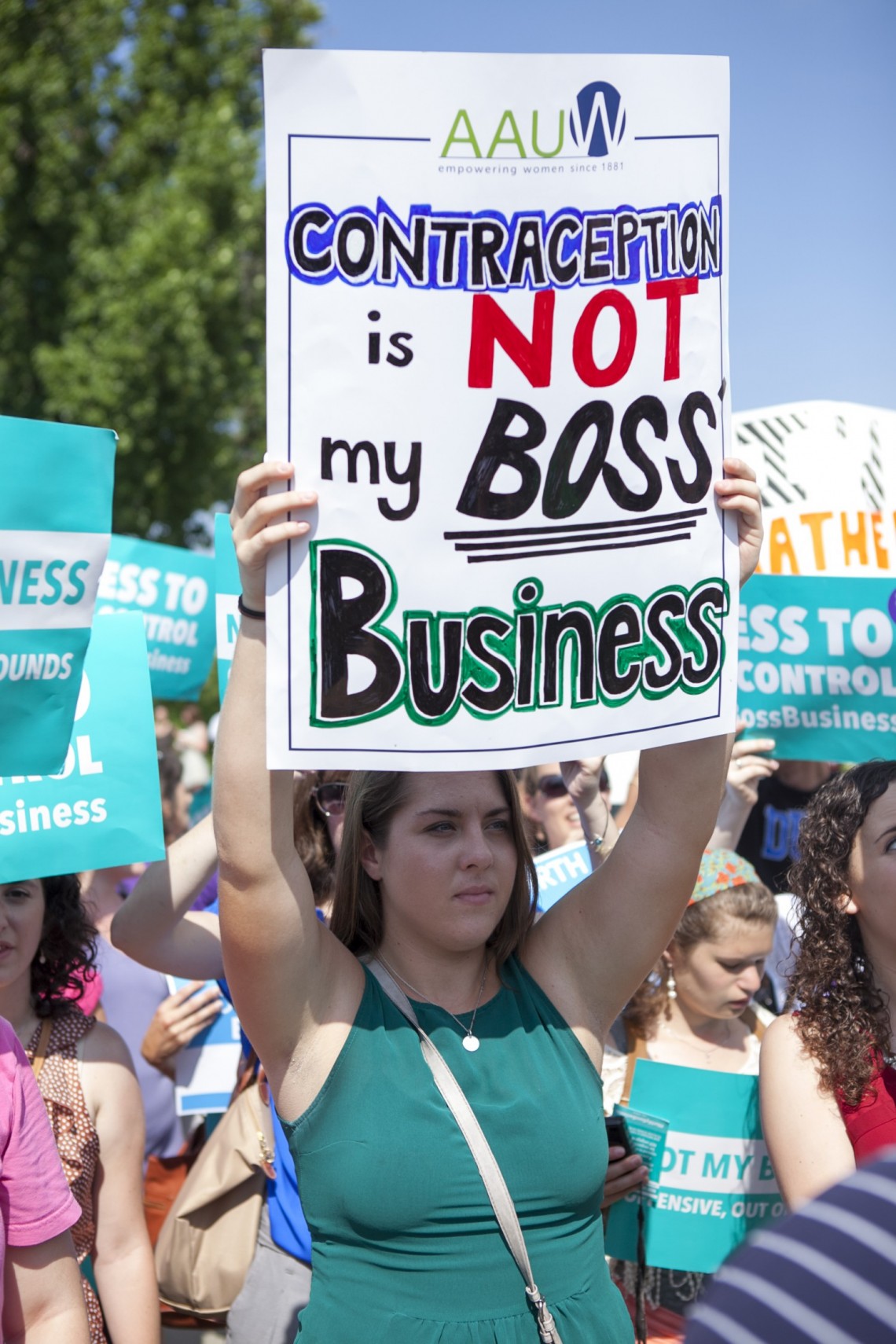Right now, just shy of 100 for-profit corporations are lining up to file injunctions in federal court to avoid compliance with the Affordable Care Act’s contraceptive coverage mandate. It is estimated that those companies employ close to 20,000 women, who will now have to jump through administrative hoops or even pay out of pocket to receive insurance coverage for birth control. All because a five Justice majority on the Supreme Court this morning decided that when Congress wrote the word “person” in the Religious Freedom Restoration Act (RFRA), they meant for-profit corporations as well. And while the majority in Burwell v Hobby Lobby insists that this is a limited ruling that applies only to small, “closely held” for-profit corporations and only to contraception, there are three compelling reasons to believe that the Supreme Court has, to paraphrase the dissent of women’s rights crusader Justice Ruth Bader Ginsburg, “ventured into a minefield” here.
The first and most obvious mine in the field is the legal roadblock now erected between female employees at these small, “closely-held” corporations (five or fewer people who control a majority of the business) and birth control coverage. Depending on how the litigation and injunctions shake out, these women will have to either go through some additional administrative hurdles or pay out of pocket for their birth control while the government figures out an alternative mechanism. As Rachel Van Sickle-Ward and I wrote in a recent study of state contraceptive mandates (J Health Polit Policy Law 2013 Aug; 38(4):683-708), deciding when or whether to conceive is essential to women’s agency, quality, and personhood. Any undue burden on a woman’s access to birth control can have adverse effects on her ability to fully and freely participate in the social and economic life of the country.
The second mine is more subtle and perhaps, for that reason, even more dangerous. It has to do with the precedent Hobby Lobby will set for future for-profit corporations to claim exemptions from this and other federal rules and regulations under the Religious Freedom Restoration Act. While Justice Samuel Alito, writing for the majority, casually dismisses fears that this ruling will send us down the slippery slope of large, publicly traded corporations filing RFRA claims to avoid paying for employees’ blood transfusions, vaccinations, antidepressants, psychiatric care, or other procedures and practices certain groups consider to be against their faith, the logic of the opinion itself speaks louder than these fragile assurances. In a decentralized, federalized judicial system such as we have in the United States, there will always be entrepreneurial judges and Justices that will entertain these claims anyway. And if they are predisposed to rule in favor of these for-profit corporations, the Hobby Lobby precedent provides them with all the support they need.
Finally, we close with the land-mine that continues to resurface and plant itself wherever and whenever Congress attempts to regulate in a manner the Supreme Court disapproves of. By that I mean the emergence of strict scrutiny with a vengeance. In Shelby County v Holder (gutting the Voting Rights Act), McCutcheon v FEC (striking down campaign finance regulations), and now in Hobby Lobby continues the disturbing trend of the Justices holding legislative action to a standard so impossibly high that no regulatory program on earth can possibly pass muster. To wit, the Supreme Court said in Hobby Lobby that because there were other imaginable means by which the government could provide insurance coverage for women without violating the religious beliefs of their employers, all other means, even if rather narrowly tailored by other standards, are unacceptable.
In closing, the Supreme Court majority in Hobby Lobby goes out of its way in the opinion to assure the highest court in the land – the court of public opinion – that its ruling is tempered, limited, and cabined. But, as I have tended to do for many years, I will have to agree with Justice Ruth Bader Ginsburg on this one. This opinion is unquestionably a minefield masquerading as judicial minimalism.
Photo Credit: American Life League









